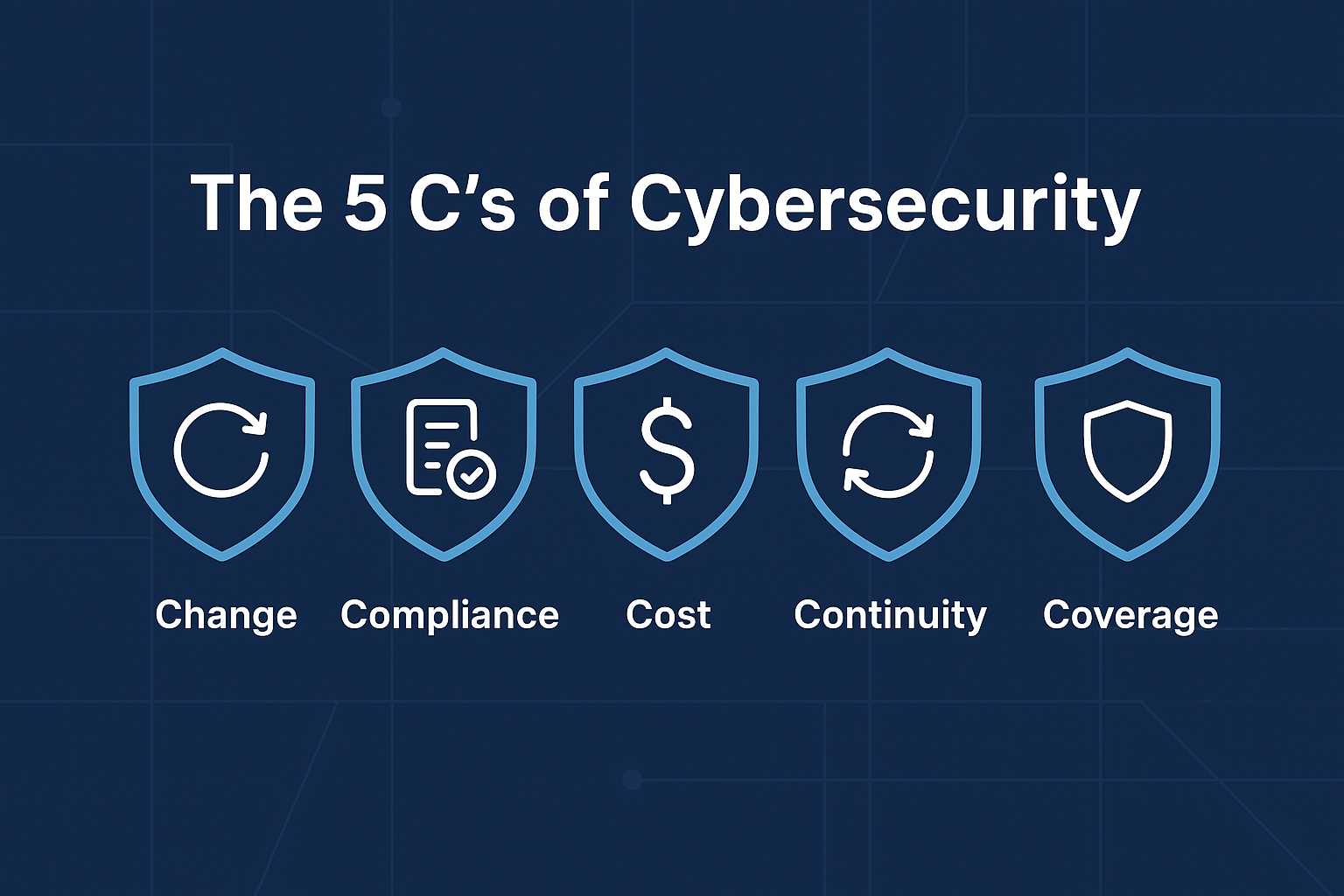The 5 C’s of Cybersecurity: Why Organization and Forethought Matter
In today’s digital landscape, the 5 C’s of Cybersecurity provide a simple yet powerful way for businesses to strengthen their defenses. Small and medium-sized enterprises (SMEs) in particular often underestimate the value of planning ahead. However, with the right cybersecurity framework, organizations can protect sensitive data, avoid costly downtime, and maintain trust with customers.
Both the 5 C’s of Cybersecurity and a structured cybersecurity framework highlight a central truth: security is not just about tools, but about organization and forethought. By preparing in advance, businesses can handle unexpected challenges without disruption.
Change – Stay Updated
Cyber threats evolve daily. Outdated systems and software are the most common entry points for attackers. To minimize risk, businesses should:
-
Enable automatic updates
-
Regularly patch devices and apps
-
Replace unsupported software
Staying updated may seem routine, but it’s the foundation of every effective cybersecurity framework.
Compliance – Follow the Rules
Regulations such as GDPR or ISO/IEC 27001 are not just legal obligations; they safeguard sensitive information and reinforce trust. Compliance helps SMEs:
-
Avoid fines and penalties
-
Build credibility with clients
-
Demonstrate responsibility
Organization is critical here—documenting policies, training staff, and conducting audits ensure ongoing compliance.
Cost – Spend Wisely
Investing in cybersecurity is often viewed as an expense, but the reality is that prevention is far cheaper than recovery. By allocating resources strategically, businesses can:
-
Secure essential tools like firewalls and antivirus software
-
Provide employee awareness training
-
Partner with trusted IT and cybersecurity providers
A proactive investment in protection always costs less than repairing damage after a breach.
Continuity – Keep Going
Even with strong defenses, incidents can still occur. Continuity planning ensures that when problems arise, businesses remain operational. This requires:
-
Data backups
-
Tested disaster recovery plans
-
Clear communication protocols
Forethought here means less downtime, less revenue loss, and more resilience.
Coverage – Protect All Areas
True protection goes beyond technology. Coverage must include:
-
Networks and infrastructure
-
Devices and cloud platforms
-
Employees through awareness and training
This holistic approach ensures that no part of the business is left exposed. Coverage ties the other “C’s” together, making them practical and effective.
Final Thoughts
The 5 C’s of Cybersecurity are more than just guidelines—they form a cybersecurity framework that helps SMEs stay secure, compliant, and resilient. By embracing organization and forethought, businesses can stay one step ahead of threats and ensure long-term success.
Which of the 5 C’s is your business strongest in—and which one needs more attention? Contact us and we can help you find the which areas in your cybersecurity posture need attention . . . it’s a FREE conversation.


